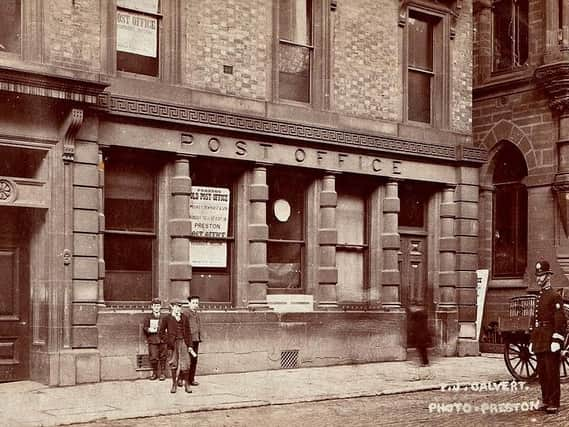Preston Post Office clerk jailed for five years for theft of stamps


In early June 1870 the growing Preston Post Office opened their new premises on Fishergate having invested over £1,790 over (equivalent to £210,000 today) on the building.
With on average over 175,000 letters, newspapers and parcels to handle each week it was a necessary progression to move from their old premises on Lancaster Road.
Advertisement
Hide AdAdvertisement
Hide AdJust over a year later the Post Office was to hit the headlines when in mid-July 1871 the chief night clerk James Holland, aged 47, stood in the dock at the Preston Police Court charged with stealing 180 postage stamps, which ought to have been forwarded to Liverpool in an envelope.
According to William Mulock, a travelling officer of the Post Office, the stamps had been forwarded in an envelope with other items in a mail bag from London. It was Holland’s duty to open the bag and forward the Liverpool letters on. Unfortunately, when the Liverpool mail was forwarded the envelope was missing.
A couple of days later Mr. Mulock and a General Post Office constable proceeded to Preston and visited the home of Holland in Great Avenham Street.
The officials quizzed him about the missing envelope and he claimed he had forwarded it as required. However, upon being searched there was found in his coat pocket the missing stamps, upon which Mr. Mulock discovered his private mark that had been inscribed in invisible ink.
Advertisement
Hide AdAdvertisement
Hide AdAfter all the evidence had been submitted to the court the prisoner responded by saying he reserved his defence and he was duly committed to take his trial at the next Liverpool Assizes.
At the mid-August Liverpool Assizes Mr. Pickering, the Attorney-General, presented the case for the prosecution. He told the court that he regretted having to bring a case against a Post Office employee of 17 years service but that for sometime a quantity of letters had gone astray. Consequently an undercover operation had been carried out and in this case an envelope had been placed amongst the normal mail and had gone missing when the Post Office officials tracked its progress.
William Drennan, the postmaster of Preston, was amongst those called to testify and he confirmed that the prisoner was on duty on the night in question and responsible for dealing with the mail. He also stated that he also had been present at the prisoner’s home when the stamps were found.
In his defence Mr. Torr claimed that the letter was not posted as in the ordinary manner, and, therefore, could only be treated as larceny, and not as property belonging to the Postmaster-General. His Lordship Baron Martin dismissed his argument saying it was against all reason and common sense.
Advertisement
Hide AdAdvertisement
Hide AdThe jury after a short deliberation brought in a verdict of guilty and His Lordship stated that he was sorry to have to pass sentence on a long-serving employee of the Post Office. He then informed Holland that he would be kept in penal servitude for five years.
At the same Assizes another Post Office official who worked at St Helens was convicted of a similar offence and Baron Martin informed him that he would also suffer a sentence of five years of penal servitude.